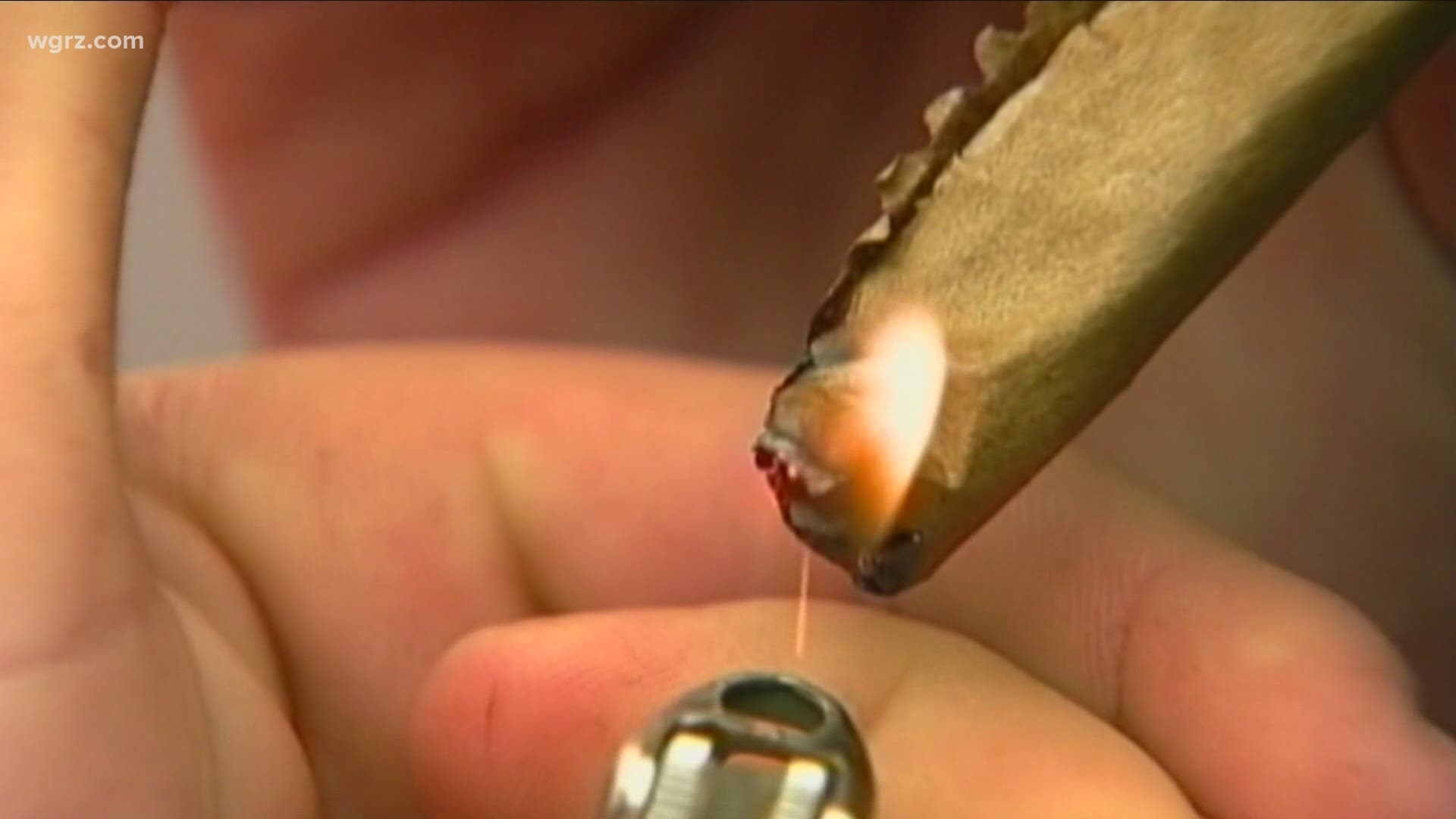BUFFALO, N.Y. — When it came to the legalization of marijuana for New York State, Assembly Majority Leader Crystal Peoples-Stokes of Buffalo helped to steer the measure through the politics of Albany.
She says they didn't forget about the road safety factor with impaired drivers.
"I think we did a really great job of not just adding talk to how do you deal with impaired driving as a result of cannabis, but adding resources to do a deep dive into the research," she said.
That research could be funded with revenue derived from sales or licensing of retail and distribution outlets for marijuana.
The National Highway Traffic Safety Administration told Congress in 2017 that research into the subject is crucial because, unlike drunk driving detection with breathalyzers, "There is no chemical test for marijuana impairment, like a BAC or BrAC test for alcohol, that quantifies the amount of alcohol in their body, indicates the degree of impairment, and the risk of crash involvement that results from the use of alcohol."
Currently, trained police officers called drug recognition experts can look for signs of impairment for a driver pulled over. But it's somewhat of a judgment call without breathalyzers which actually measure alcohol levels in the blood.
It is an issue which other states like Colorado have faced. KUSA-TV in Denver reports that the Colorado Department of Transportation determined there were 31 marijuana-related fatal crashes in 2018. That is much less than the 188 alcohol-related crashes that year in Colorado, but it's obviously still a matter of concern.
University at Buffalo, with its track record of addiction studies, would like to handle that research challenge of helping to determine THC levels with impaired driving.
But first off, since the federal government still says marijuana is illegal and just as bad as heroin, in its eyes, there is plenty of approval needed from the federal Drug Enforcement Administration and Food and Drug Administration, which even affects the potency amount. It can run up to 90 percent THC content in some states for retail, versus 15 to 20 percent from a United States-approved for research supply.
Dr. Lorraine Collins, who is an addiction studies research expert with UB, points out: "It's a very, very different product, and we know that the potency of cannabis is going to affect human behavior, cognition, and various other things."
Collins added: "What's legally available for conducting human research does not match what's available in the retail space. And New York just passed its law, so we don't know what potencies will be allowed."
Collins says there are challenges in coming up with an impairment standard.
She points out that while we just drink alcohol, which metabolizes differently in the body, marijuana can be smoked, vaped, added to a drink of tea, or even eaten, such as edible gummies or, of course, in laced brownies.
That can play a role in its effect on the human body and behavior.
When it comes to handling the impairment issue, other states such as Colorado have tried differing approaches, like purposely getting people high so police officers can observe them in person in a conference room.
Colorado's DOT also recommends that those using marijuana wait at least seven hours before getting behind the wheel of a vehicle.
We also asked Dr. Collins about research on the subject in a country such as Canada, which legalized recreational marijuana in 2018.
She said: "Their federal statute is just a few years old, so it's not as if, you know, you kind of flip a switch, and all of a sudden research is done. It will take some time for them to build research capacity."
The New York State health department also replied Thursday evening that it "has a positive working relationship with the University at Buffalo, including on prescriber education to combat the opioid epidemic, and the Department has long advocated to the federal government for more open avenues to cannabis research and more providers of cannabis for research.
"The Department encourages further research and scientific development to improve medical marijuana products for patients, support agricultural innovation in cannabinoid hemp products made in New York State, better detect and deter impaired driving and ensure the quality of future adult-use cannabis products"
The DOH statement added: "While the federal government does restrict who can conduct THC-based research and how it is sourced, the state will be issuing expanded research licenses under the new legislation which could be used to conduct research with products sourced from state-regulated licensees."

